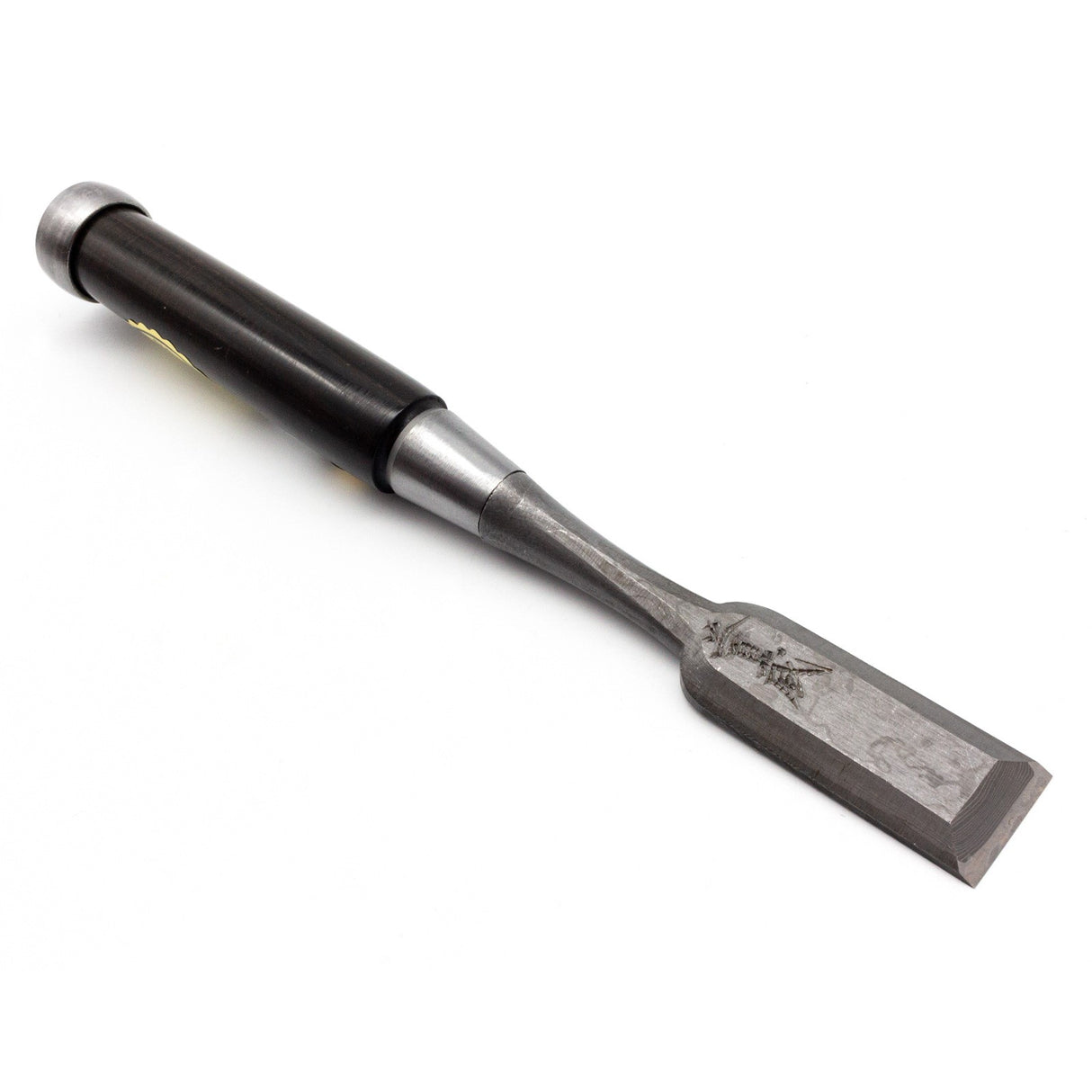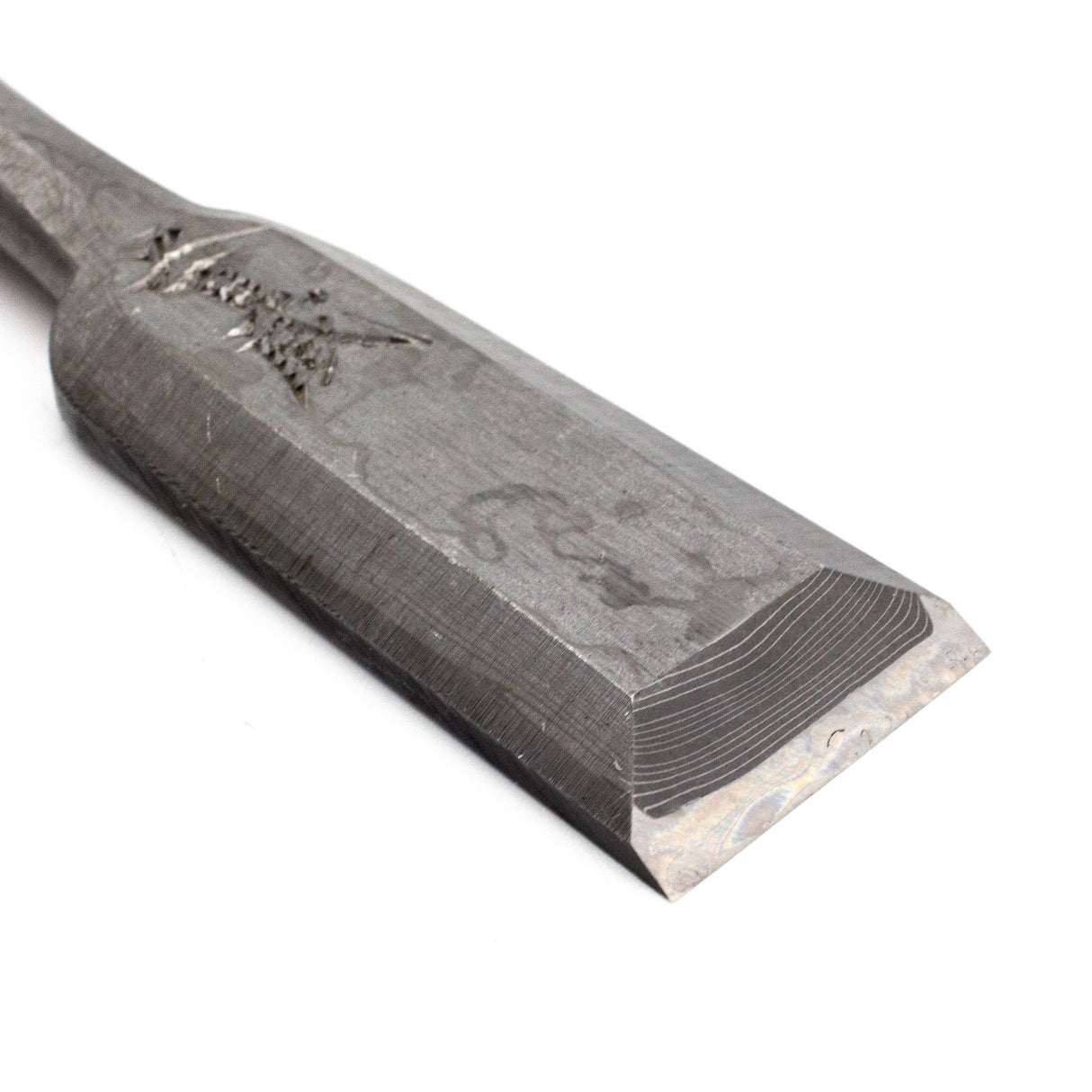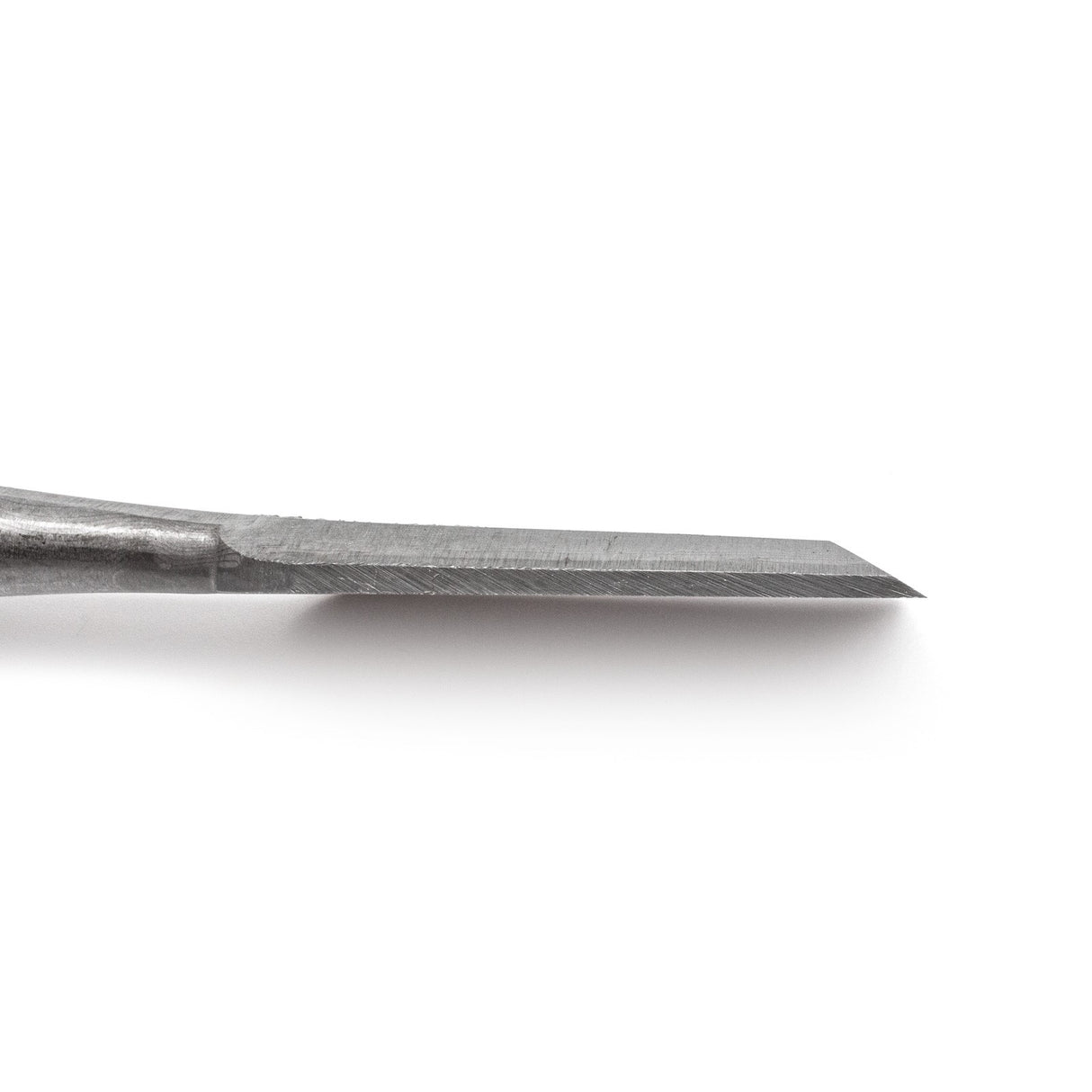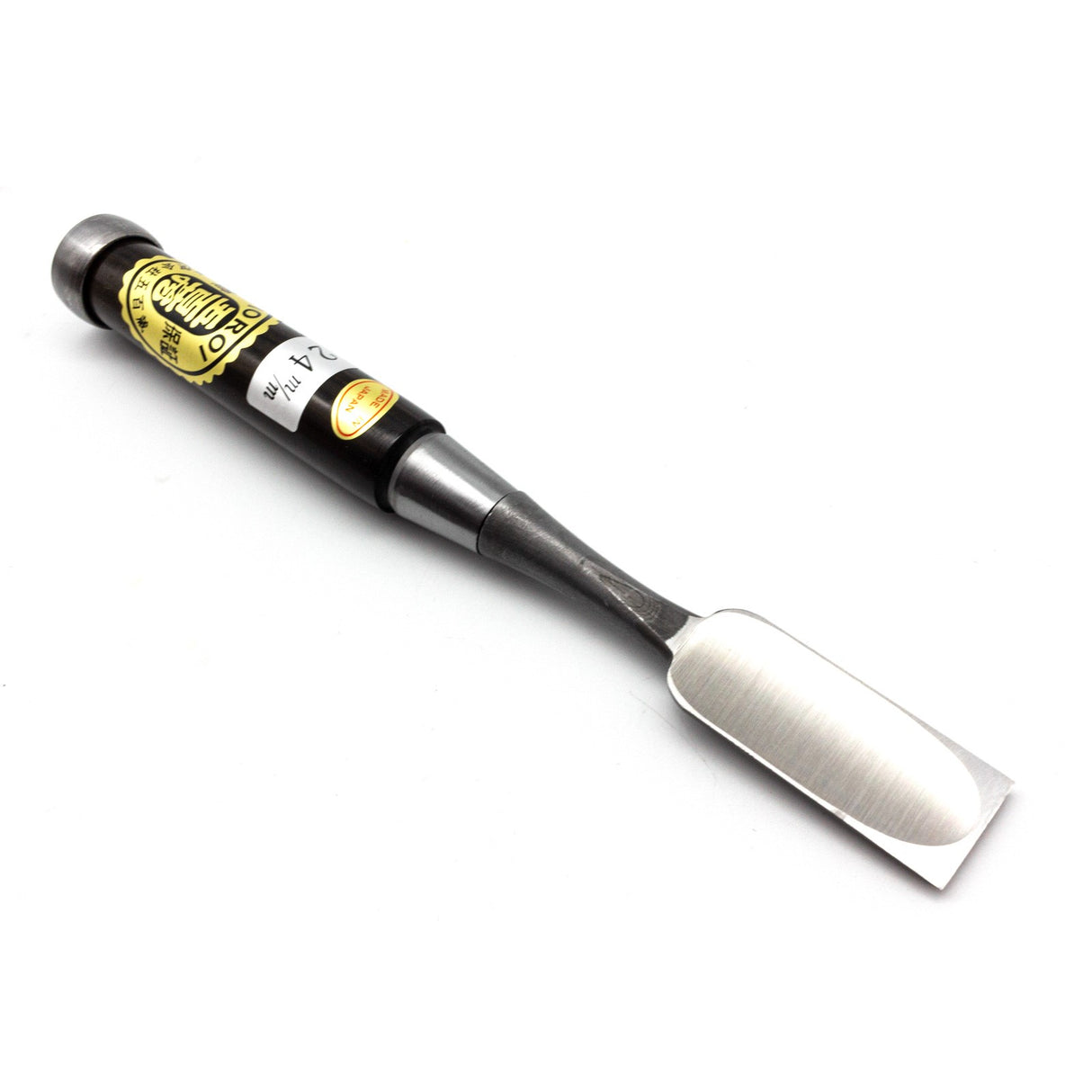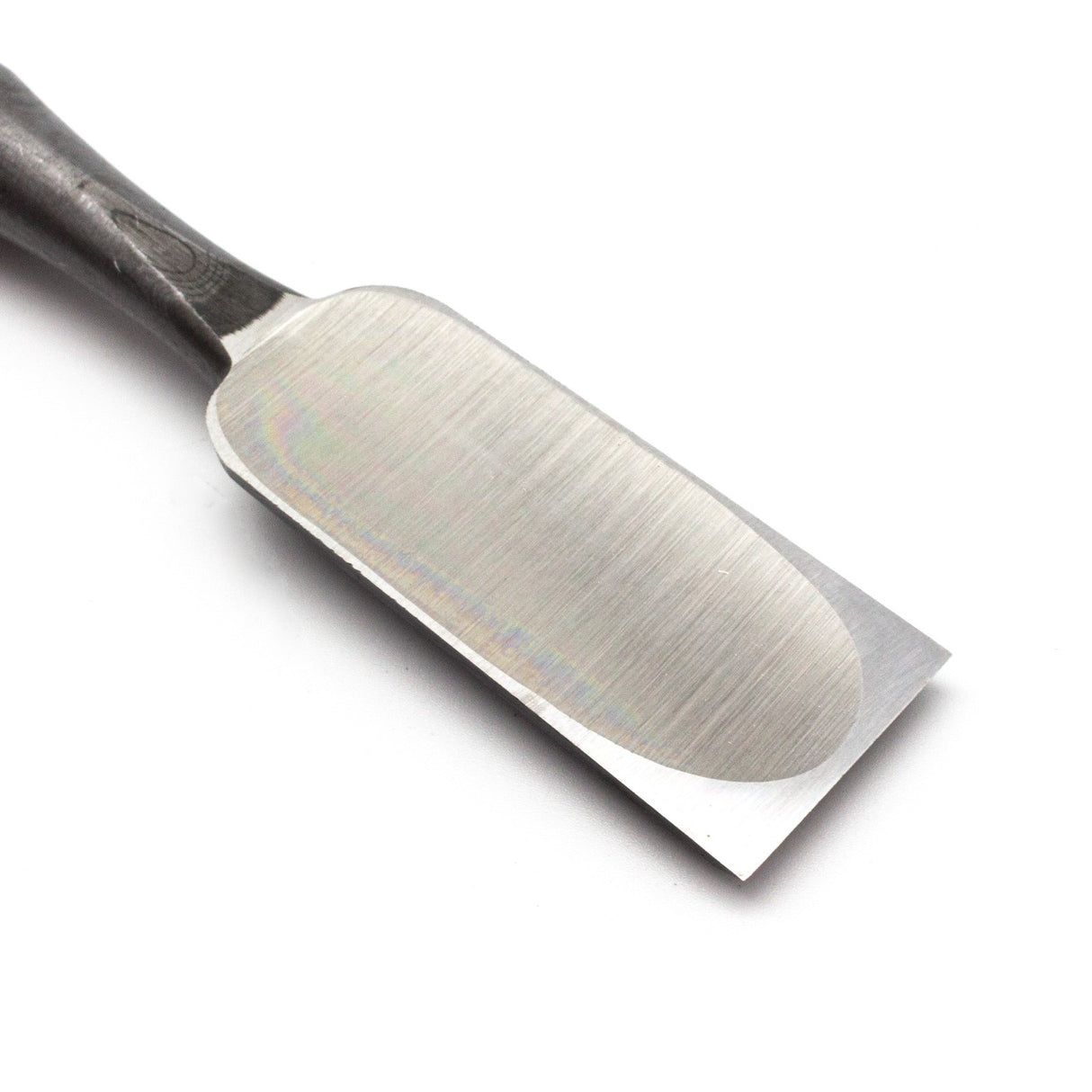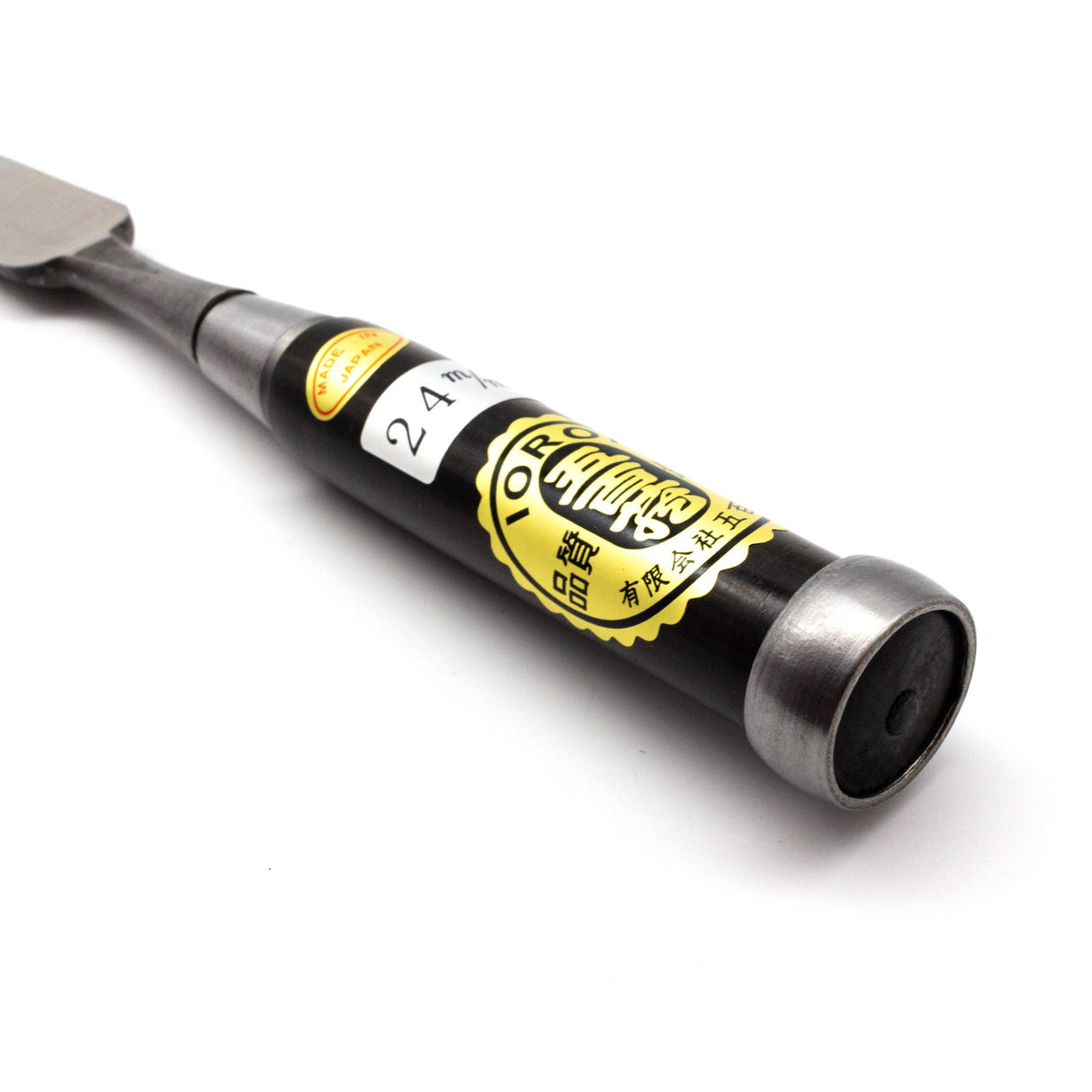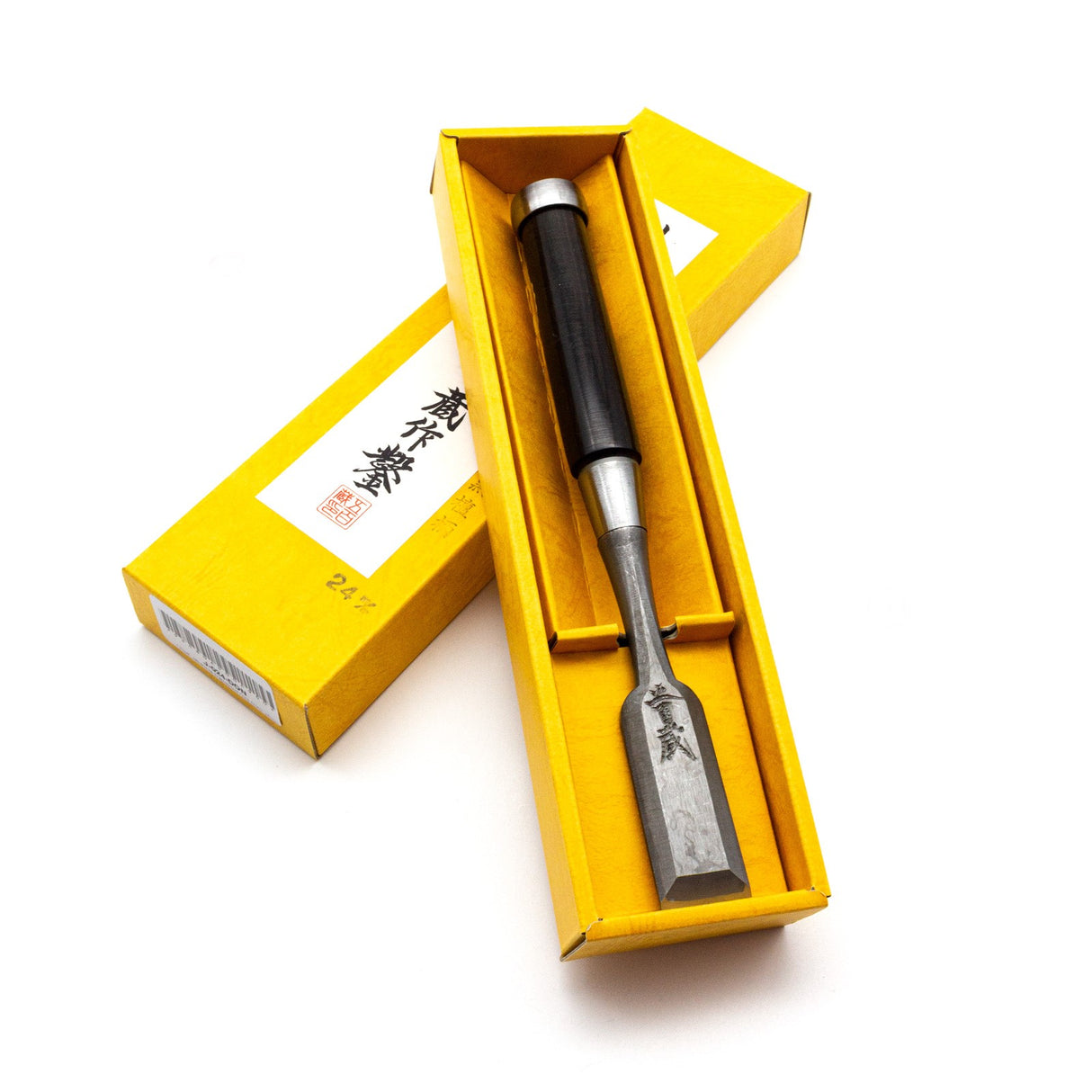Ioroi Japanese Damascus Oire Nomi Chisel with Ebony Handle
Sale ends in:
Ioroi Japanese Damascus Oire Nomi Chisel with Ebony Handle - 3mm is backordered and will ship as soon as it is back in stock.
Request Further Information
Ioroi Japanese Damascus Oire Nomi Chisel with Ebony Handle
![]() Eligible for FREE Shipping*
Eligible for FREE Shipping*
Japanese chisels are made for working wood. The combination of their forge welded blade, hollow back, and ferrule / tang mounted hardwood handles makes a Japanese chisel a most effective and delightful chisel to use. Japanese chisels are a great option for anyone who loves using hand tools to work wood.
Working with hand tools is one of the great pleasures of woodworking. And using Japanese tools takes this experience to the next level. If you are purchasing your first Japanese chisel, or if you are ready to take the next step, then check out this Damascus Oire Nomi chisel made by Ioroi.
Damascus Oire Nomi Chisels are available in 11 widths, please select your preferred option.
With their forge welded blade, hollow back and socket ferrule / tang mounted hardwood handles, Japanese chisels are distinctly different in construction to Western chisels. This does not mean that are either superior or inferior, after all, they virtually do the same job. They are simply the Japanese approach, built upon hundreds of years of tool making tradition.
Your Damascus Oire Nomi Chisel
Unlike the common varieties of Oire Nomi available, this chisel is handmade using Damascus steel. The chisel features an Ebony handle with a steel hoop means they are designed for striking with a metal hammer or wooden mallet. The chisel blade is relatively thick and stout with a wide chamfer on both upper edges. This makes the chisel lighter and easier to handle, also reduces friction when completing shallow mortises. Japanese chisels are assembled using a combined socket ferrule and tang design making them very secure and long lasting. Oire Nomi styled chisels are used for a broad range of tasks including mortising, shaping tenons and joinery.
Why a welded blade?
Your Damascus Oire Nomi chisels blade features a layer of high carbon White Paper steel forged to a softer Damascus steel wrought iron back. This produces a chisel with an extremely hard cutting edge cushioned by the softer steel blade. This blade making technique has been developed by Japanese Master blacksmiths over hundreds of years. These chisels stay very sharp and are perfect for working difficult softwoods and abrasive hardwoods.
What is Damascus Steel?
Made by repeatedly folding the steel, Damascus Steel is easily recognised by its layered pattern obvious on the bevel of your Damascus Oire Nomi. These chisels are not just a pretty face. Damascus Steel chisels are highly valued as they are hard, flexible and will maintain a very sharp edge. These chisels are made for work as much as pleasure.
What is White Paper Steel?
Japanese tools are made from either White Paper steel (Shirogami) or Blue Paper steel (Aogami), the colours refer to the paper used to wrap the steel by the manufacturer. White Paper Steel is a hard, high carbon steel with few impurities. White paper steel contains less carbon than Blue Paper steel chisels so therefore tougher and less prone to chipping.
Why a hollow back?
The hollow back is to aid the process of sharpening. The hollow creates a very thin area behind the cutting edge, and it is only this narrow section that requires flattening. Due to the hardness of the steel, without the hollow back the chisel would simply take forever to flatten. With age it is possible that hollow can interfere with the cutting edge, no worries, they chisel can be reshaped by hand to extend its life indefinitely.
Why a socket ferrule and tang?
Western chisels are generally constructed in two ways - socket or tang. Socket chisels are where the handle fits into a socket forged as part of the blade. Tang chisels are where the blade tang is inserted into the handle supported by a steel ferrule.
Modern Japanese chisels are a combination of socket and tang chisel designs. A heavy tang is inserted into the handle supported by socket shaped ferrule. This results in a very solid, long lasting and self-tightening chisel.
Why a steel hoop?
The steel hoop protects the top of the handle from the blows of steel hammers commonly used in Japanese woodworking. Traditionally, fitting the steel hoop was the responsibility of the purchaser. Modern Japanese chisels are generally supplied with the hoop fitted in position. The hoop and chisel handle may be adjusted as the chisel ages.
Made in Japan
These Damascus Steel Japanese chisels are a high-quality product, made by Master Blacksmith Ioroi in Japan.
Damascus Steel
Damascus Steel is easily recognised by its layered pattern obvious on the bevel of your Damascus Oire Nomi. Made by repeatedly folding the steel, these chisels are not just a pretty face, Damascus Steel chisels are highly valued as they are hard, flexible and will maintain a very sharp edge. These chisels will provide you with many years of pleasurable work, pass to the next when your time is done.
Welded White Paper steel blade
Your Damascus Oire Nomi chisel has an extremely hard White Paper steel cutting edge cushioned by a softer steel blade. This means your chisel will stay super sharp even with extended use. Japanese chisels are ideal for difficult soft woods and resist the natural abrasion often encountered with exotic hardwoods.
A handmade tool
Your Damascus Oire Nomi may appear a little uneven with hammering visible on the chamfered face. Perfectly imperfect, this chisel is handmade by a Master Blacksmith. Your Damascus Oire Nomi is signature stamped by the maker, your personal connection to the ancient Japanese art of making steel swords and tools.
The hollow back
The back of your Japanese chisel is very hard. The hollow back means flattening your chisel when sharpening is far less time consuming. Spend more time woodworking and less time sharpening.
Socket ferrule and tang assembly
The socket ferrule and tang design make a Japanese chisel a very secure, stable and long-lasting chisel. Striking the chisel forces the handle ferrule deeper into the socket, tightening the sockets grip even further.
The steel hoop
The steel hoop protects the top of the handle from the blows of steel hammers commonly used in Japanese woodworking. The handle of your Oire Nomi chisel is protected even when using the heaviest or hardest of mallets.
Ebony handle
The handle of your Damascus Oire Nomi is made from Ebony. This material is hard and dense, perfect for making tool handles. The chisel handle also bulges in the middle, strengthening the chisel further and helping the chisel to fit comfortably in your hand.
Stout robust design
Japanese chisels tend to be shorter and squarer than Western chisels. Combined with the chisels steel hooped hardwood handle, you have a chisel that is made for work. Chop and chip away using a Japanese steel hammer or wooden mallet. Perfect for all types of joinery tasks.
Packaging
Your Damascus Oire Nomi chisel comes packed in a beautiful hard cardboard box - your chisel will arrive in perfect condition. Also means it is a thing of beauty, matched only by the pleasure you will find using it.
A tool for life
Your Damascus Oire Nomi chisel is a lifetime investment. These chisels are of high quality, built to last and a pleasure to use. In addition, Japanese chisels are designed so they may be maintained as they age and wear, they can even be modified. For example, the hollow back of the chisel may be modified to extend the chisels life indefinitely. The handles are made so the steel hoop can be repositioned as the end of the handle wears through heavy use. You can even make your own handles and fit them if you so desire. These are the tools of the true craftsperson.
Made in Japan
The chisel is a very old and fundamental tool. And the Japanese are Masters of their manufacture. Your Damascus Oire Nomi chisel promises you years of pleasurable use and will find a permanent home in your hand tool kit. Order yours today.
A note on handmade Japanese chisel design and assembly
As outlined above, Japanese chisels are made in four parts. A blade with tang. A socket shaped ferrule. And a handle with a fitted steel hoop. The important point is that the socket ferrule and handmade Damascus blade are separate steel elements, made from different types of steel. In addition, the Damascus blade is handmade - perfectly imperfect. When the Damascus blade is set against the steel ferrule, the two elements appear significantly different. This is simply how these chisels are constructed, and in no way impacts on the quality or long-term performance of the chisel.
|
Please note: The blade length specified for these chisels are approximations. Japanese chisel blades may differ in length by plus or minus 5mm.

